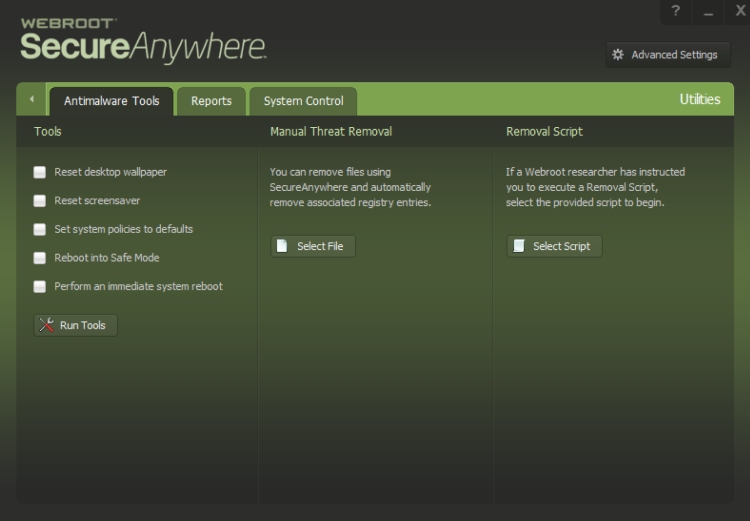
- #Webroot secureanywhere internet security 2013 install
- #Webroot secureanywhere internet security 2013 full
- #Webroot secureanywhere internet security 2013 android
- #Webroot secureanywhere internet security 2013 password
Typically, these URLs are no more than a day or two old. For a measure of how well it handles current, prevalent malware, I start with a feed of malware-hosting URLs supplied by MRG-Effitas. Webroot's detection system aims to defend against the very newest malware, so doing well against my months-old samples was no big surprise. With a perfect 10 of 10 possible points, Webroot holds the top score in this test. After the second scan, it had eliminated every malware sample while leaving valid programs in the same folder untouched. It automatically scanned again to be sure it didn't leave behind any malware.
#Webroot secureanywhere internet security 2013 full
Launching just one of my samples triggered a warning by Webroot and caused it to run a speedy full scan, which caught more of the samples.

My own hands-on malware protectiontest isn't all that different from what the labs do, but I have the luxury of letting it take as long as necessary. All four labs evaluated Kaspersky, and its aggregate score of 9.9 points is excellent. Bitdefender, tested by three labs but skipped in the latest results from SE Labs, tops the list with 10 points. My lab results aggregation algorithm assigns Webroot 7.7 of 10 possible points, which is low, but understandable. It also received certification from SE Labs, though not at the highest level. However, it did score well in both the tough tests by MRG-Effitas. Webroot's journal-and-rollback system doesn't jibe with those tests. Many tests by the big independent labs like AV-Test Institute and AV-Comparatives assume that if the antivirus is going to recognize and wipe out malware, it will do so right away. Note, too, that if the bad guys are going after you, personally, using never-before-seen hand-modified malware, they're probably going to succeed regardless of your security protection. My company contacts tell me that Webroot has a defense against process hollowing in the works. Experimenting with hand-modified ransomware, I did come up with one that got past Webroot, using an advanced technique called process hollowing. Webroot wiped out all my real-world ransomware samples, but, using a ransomware simulator I wrote myself, I verified its ability to reverse unwanted file encryption. This system can even reverse a ransomware attack, provided the ransomware doesn't encrypt so many files it overloads the journaling system. A thumbs-down from the cloud tells the local agent to wipe out the process and reverse everything it did. If it can't reach the cloud, it journals actions by all-new processes. It journals all actions by unknown processes and reports the behavior pattern to its cloud database. Webroot relies mainly on behavior-based detection to classify programs as safe or malicious. Lab Test Results Chart Malware Protection Results Chart Phishing Protection Results Chart I'll briefly run through my results here.


Please read my review of the basic antivirus for full details of my findings. The antivirus protection of this suite comes from Webroot SecureAnywhere AntiVirus.
#Webroot secureanywhere internet security 2013 password
If you click Learn More in the antivirus, the "more" you learn is that to get password management you need to buy the suite. In the antivirus, you just see Learn More. If you've installed the suite, you see two buttons, Start Now and Learn More. There isn't even a different window title both just say "Webroot SecureAnywhere." You won't see any difference until you click the Password Manager button. The suite's main window is identical to that of the standalone antivirus. You manage your installations or extend protection to a new device by logging in to your Webroot account online.
#Webroot secureanywhere internet security 2013 android
The Android security app costs $14.99 per year as a standalone, so your Webroot licenses are more valuable on a PC or Mac. On a Mac, you get Webroot SecureAnywhere Antivirus (for Mac), plus Webroot's password manager.
#Webroot secureanywhere internet security 2013 install
You can use your Webroot licenses to install protection on devices running Windows, macOS, or Android.


 0 kommentar(er)
0 kommentar(er)
